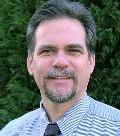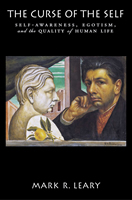WFU psychologist explains the ‘curse of the self’
 Self-reflection, the uniquely human ability to think about past mistakes, plan for the future and take steps toward self-improvement, seems like a blessing.
Self-reflection, the uniquely human ability to think about past mistakes, plan for the future and take steps toward self-improvement, seems like a blessing.
It is also a curse, says Mark Leary, professor and chair of psychology at Wake Forest University.
“Few people realize how profoundly their lives are affected by their self-thoughts or how frequently this inner chatter interferes with their success, pollutes their personal relationships and undermines their happiness,” Leary says.
 In his new book, “The Curse of the Self” (Oxford University Press, August 2004), Leary explores how people create a variety of personal and social problems by thinking about themselves too much. Often, feelings such as depression, anxiety and anger occur because individuals cannot stop dwelling on some past failure or future worry.
In his new book, “The Curse of the Self” (Oxford University Press, August 2004), Leary explores how people create a variety of personal and social problems by thinking about themselves too much. Often, feelings such as depression, anxiety and anger occur because individuals cannot stop dwelling on some past failure or future worry.
“The same ability to self-reflect that makes us wonderfully human and underlies the best features of civilization also creates havoc by fostering selfishness, suffering, troubled relationships, disastrous decisions and behavior that is dangerous to ourselves and to others,” he says.
Leary traces the curse of the self back to its evolutionary roots. He argues that “the self” evolved to help us meet the challenges of living as prehistoric hunters and gatherers.
“At the time, the self was an outstanding evolutionary adaptation,” he says. “For the first time, people could think consciously about themselves and their lives, allowing them to plan, act intentionally and solve problems better than any other creature on earth.”
What increased the chances for survival a million years ago can cause problems today.
“When human beings first evolved the ability to be self-aware, they used it to plan only a few hours or days ahead,” Leary says. “Today, however, people spend much of their time thinking about things that may happen months or years from now. As a result, many people are plagued with excessive worry about the future, worry that serves no useful purpose to them.”
People sometimes talk so much in their own minds that they do not have enough mental capacity left over for other kinds of thinking. For example, when athletes choke in games or actors forget their lines or students are paralyzed by test anxiety, Leary says it is sometimes because their internal self-talk is diverting their attention from the task at hand.
“If the self had been installed with a mute button or off switch, the self would not be the curse to happiness that it often is,” Leary says. “Learning to quiet the voice in one’s head is the first step.”
He suggests quieting the self through meditation. “Meditation comes in a number of varieties to suit almost any taste,” he says. “Despite superficial differences, all meditation practices share an emphasis on reducing unnecessary self-talk.”
The self can also be detrimental when egocentric views lead to conflicts with others.
“When individuals try to defend their egos, they often act as if their ego is a real thing rather than just a mental image they have of themselves,” says Leary, the author of 10 books on social psychology topics, including social anxiety and interpersonal rejection. Criticism or minor slights can evoke strong reactions, even when the situation itself is unimportant and has no real consequences for the individual.
So, Leary suggests people develop a healthy sense of what he calls “ego-skepticism,” the understanding that one does not always have an accurate view of the world and should be skeptical of one’s own interpretations of events.
If people better understand how the mind naturally works, says Leary, the self can become an ally rather than an enemy.



